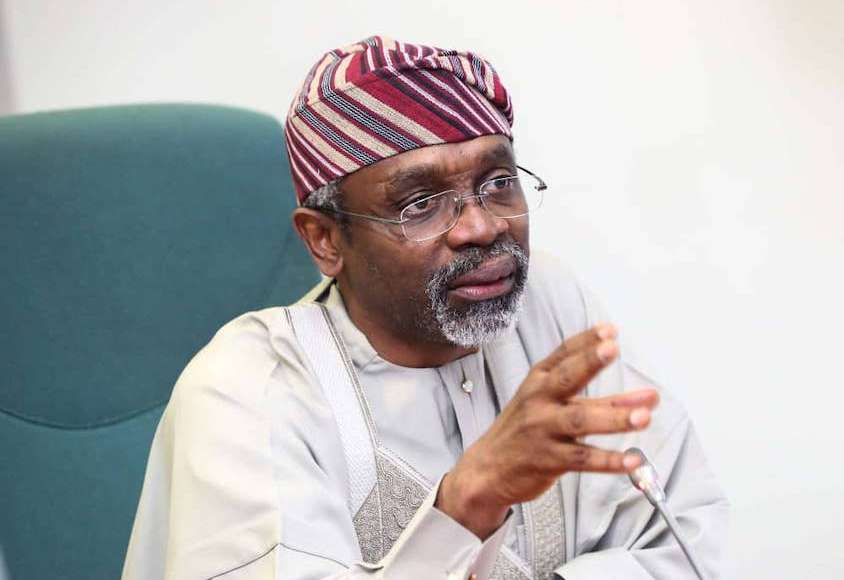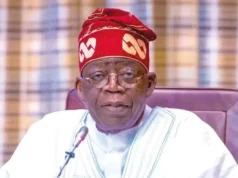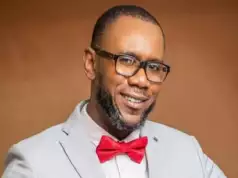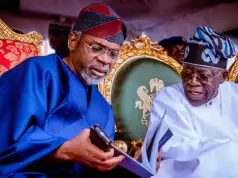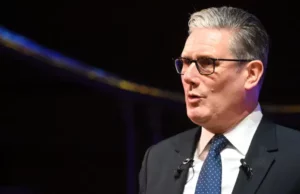Ahead of the 2023 general elections, speaker of the House of Representatives, Femi Gbajabiamila, has said Nigeria was desperately in need of leaders with capacity and character.
The speaker canvassed the opinion while speaking at the opening of the Legislative Mentorship Initiative, LMI, in Abuja yesterday.
The initiative, started by Gbajabiamila, was in line with his vision of mentoring the younger generation from his over twenty years of experience in public service.
Themed “Youth Leadership and the Future of Democracy: Harnessing the Power of Young People in Nigeria”, the programme which would last for three weeks, drew 71 young participants from the 36 states of the federation and the Federal Capital Territory, FCT.
Gbajabiamila underscored the need to integrate young people in the scheme of politics and governance, emphasizing they were ready for change.
He added that their readiness had made them to question the structures of politics and governance.
He said: “Whatever happens, Nigeria desperately needs leaders with the capacity and character to manage change. The consequences of the changes happening in our world today will depend on how we respond, the decisions we make, and the ideas we choose to invest in. The quality of our decision-making in politics and governance will define the course of our country.
“Many young people are eager to make a change; they cannot change anything if they don’t understand and participate in the political and governance process. We aim to involve more young people and direct their energies into something tangible contributions to good governance and national development.
“The legitimacy of the democratic system of government derives from and is sustained by the quality of outcomes – social opportunity, economic prosperity, national security, the rule of law and protection of individual rights.
”When democratic self-government falls short of these expectations, it frays the social consensus and public support necessary to sustain it. In many critical ways, our best expectations of democracy have not been met for various reasons.
The question for our consideration is, “what does this portend for the future of democracy in Nigeria?”
“On May 29, 2023, a new President will be inaugurated, and we will mark twenty-four years since Nigeria’s return to democratic rule. A significant portion of our population today are young people who have no experience of a military government and are not conditioned to see democracy as an absolute good for its own sake.
“They bear no allegiance to politics and politicians, and their judgment of governing systems and institutions is determined by whether those individuals, systems and institutions meet their expectations. For these young people, Nigeria has been a democracy for all or most of their lives.
“As more of them come of age, they are questioning the systems and structures of politics of governance and challenging flaws and limitations as they see them.
”They are not as inclined as generations before them to excuse the failures of democracy because the alternative of military rule is worse. And they will not accept incremental progress when radical reform is necessary and possible.
“This is a good thing. It is also a dangerous thing. Nations are redefined and re-rejuvenated by the deliberate effort to reconsider the underpinnings of nationhood and remove deep-rooted assumptions and practices irreconcilable with the desired future.
“For instance, the American civil war changed the trajectory of American history. The war arose from an attempt to address the original sin of slavery and is a timeless example of the dramatic shifts that can result from a national reassessment of values.
It is also a reminder that broad-based national transformation is rarely without profound costs.
“Young people are poised to ask the hard questions and dismantle the egregious practices generations before have either ignored or taken for granted. However, there is a danger that this generation embarks on this course without the proper grounding in history, politics, and statecraft necessary to prevent unnecessary pain and worthless suffering. We are in this situation because of policy choices made over time, most appallingly in the education sector, from primary to tertiary education”.
Gbajabiamila stated further that locking young people out of politics would make them a willing tool in the hands of bad actors.
“When young people want to participate in politics but feel locked out of the process, their eagerness to participate doesn’t wane. Instead, they become available to bad actors, manipulated, and primed to become soldiers in a war of attrition against society.
“When young people feel like their cares are not the concern of politics and the work of government does not advance their cause, such feelings lead to a dangerous cynicism about politics and government.
”This cynicism is the reason so many of our people believe that everything government does is for the benefit of a few. This corrosive loss of faith makes it difficult to build the political consensus necessary to effect systemic reform.
”It contributes to the cycle of political dysfunction that undermines our nation’s progress and, left unchecked, is fatal to democracy.
“We must continue our ongoing efforts to improve our electoral processes. Election outcomes must reflect the will of the people, and citizens must have confidence that they can hold political leaders accountable through the ballot box.
”The essence of democracy is that state power can only be legitimately exercised by those who have the mandate of the electorate to do so. If we cannot guarantee free, fair and credible elections, then we cannot claim to have a democracy.
“There is an urgent and overwhelming need to reform the approach to policy-making across all levels of government in Nigeria. We must consider that unconventional approaches are required in many areas of our national life to bring us closer to the full promise of our nationhood,” he said.

